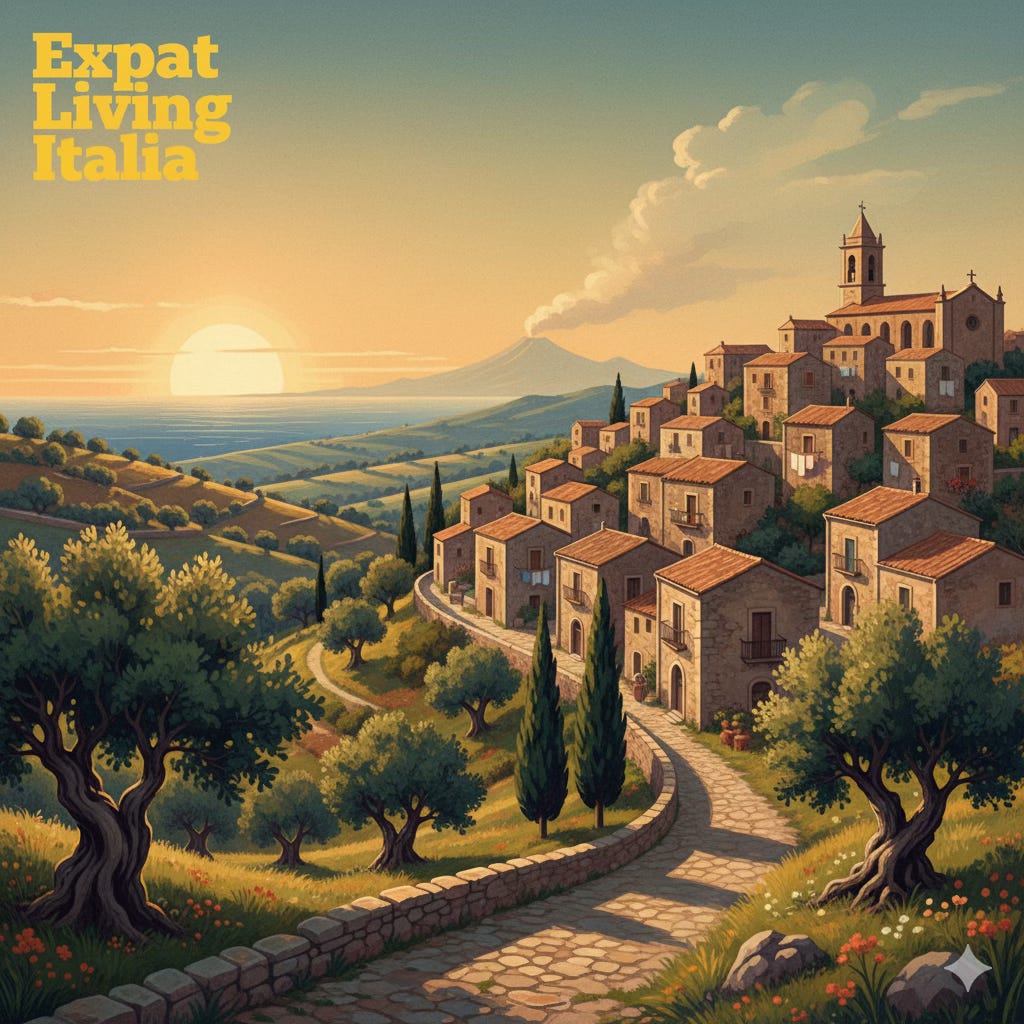The Allure of the 1 Euro House
Dream or Delusion for Your Italian Retirement?
The headlines are captivating: "Buy a House in Italy for Just 1 Euro!" For many dreaming of a sun-soaked retirement amidst rolling hills and charming villages, it sounds like an irresistible offer. But for those seriously considering a move, especially from places like Singapore where property prices are astronomical, the question looms: Is a 1 Euro house truly worth it, or are you better off looking elsewhere in Italy for your retirement home?
Let's dive into the reality behind these enticing offers.
The Appeal: What's the Catch?
The "1 Euro house" initiatives are generally launched by struggling municipalities in Italy, primarily in the south or in remote, depopulated areas. Their goal is to revitalize dwindling towns, bring in new residents (and their spending power!), and restore dilapidated historical properties.
For a symbolic price of €1, you typically commit to:
Renovation: A significant and often immediate commitment to renovate the property within a specified timeframe (usually 1-3 years).
Deposit: A guarantee deposit (ranging from €1,000 to €5,000) that is returned once renovations are complete.
Residency: Sometimes, a commitment to take up residency in the municipality.
The Hidden Costs and Realities
Here's where the dream can quickly meet reality:
Renovation Hell (or Heaven): These aren't turn-key homes. They are often ruins requiring extensive structural work, new roofs, plumbing, electrical, and interior finishes. Renovation costs can easily soar from €20,000 to €100,000+, depending on the size and condition, and often much higher for significant structural issues. Getting permits, finding reliable local contractors, and managing the project from abroad can be a monumental task.
Location, Location, Location: The towns offering these houses are usually very rural, often in areas with limited services, few English speakers, and sometimes a significant distance from major hospitals, airports, or amenities. While charming, this isolation might not be ideal for retirement, especially if you rely on public transport or medical facilities.
Bureaucracy and Language: Navigating Italian bureaucracy for property ownership and renovation permits is complex and requires patience, often a good Italian lawyer, and sometimes a trusted local intermediary who speaks Italian fluently. This can be challenging even for those who speak some Italian.
The Alternative: Buying Elsewhere for Retirement
If the 1 Euro house sounds like more work than you bargained for, Italy still offers fantastic value for retirement homes.
Bargains in Less-Known Regions: Beyond the 1 Euro schemes, you can find incredibly affordable, habitable homes in charming towns across regions like Puglia, Basilicata, Calabria, and even parts of Sicily, Umbria, or Marche. These might cost €50,000 to €150,000, offering a much more predictable renovation budget or even being move-in ready.
Predictable Costs: Buying a house that needs less work, or where renovations are more clearly defined, means you have a far clearer financial picture.
Accessibility and Services: You can choose a location closer to amenities, other expats, or larger towns, which might be crucial for healthcare, social life, and travel in retirement.
Time vs. Money: While you'll pay more upfront, you save immense amounts of time, stress, and potential unforeseen expenses that often come with a full structural renovation.
The Verdict
For those seeking an adventure, with a substantial budget for renovation, a willingness to immerse themselves deeply in a very local community, and a high tolerance for bureaucracy, a 1 Euro house could be a rewarding project. It's a passion project, not a cheap shortcut to an Italian retirement home.
For most prospective retirees, however, buying a slightly more expensive but habitable property in a well-chosen town offers a far more realistic, less stressful, and ultimately more enjoyable path to la dolce vita. You get to skip the renovation headaches and jump straight into enjoying your Italian retirement from day one.
Before you jump, do your research, visit potential locations, and be brutally honest about your budget, patience, and appetite for a major project. Your Italian dream awaits, but choose the path that best suits your retirement vision.


